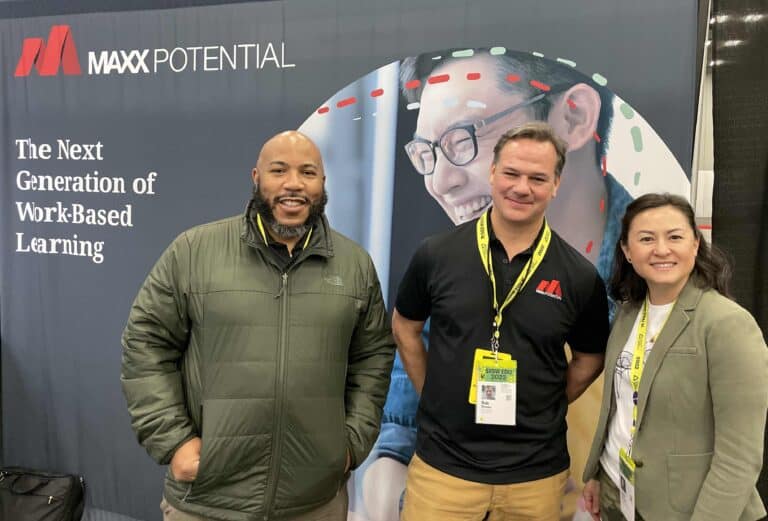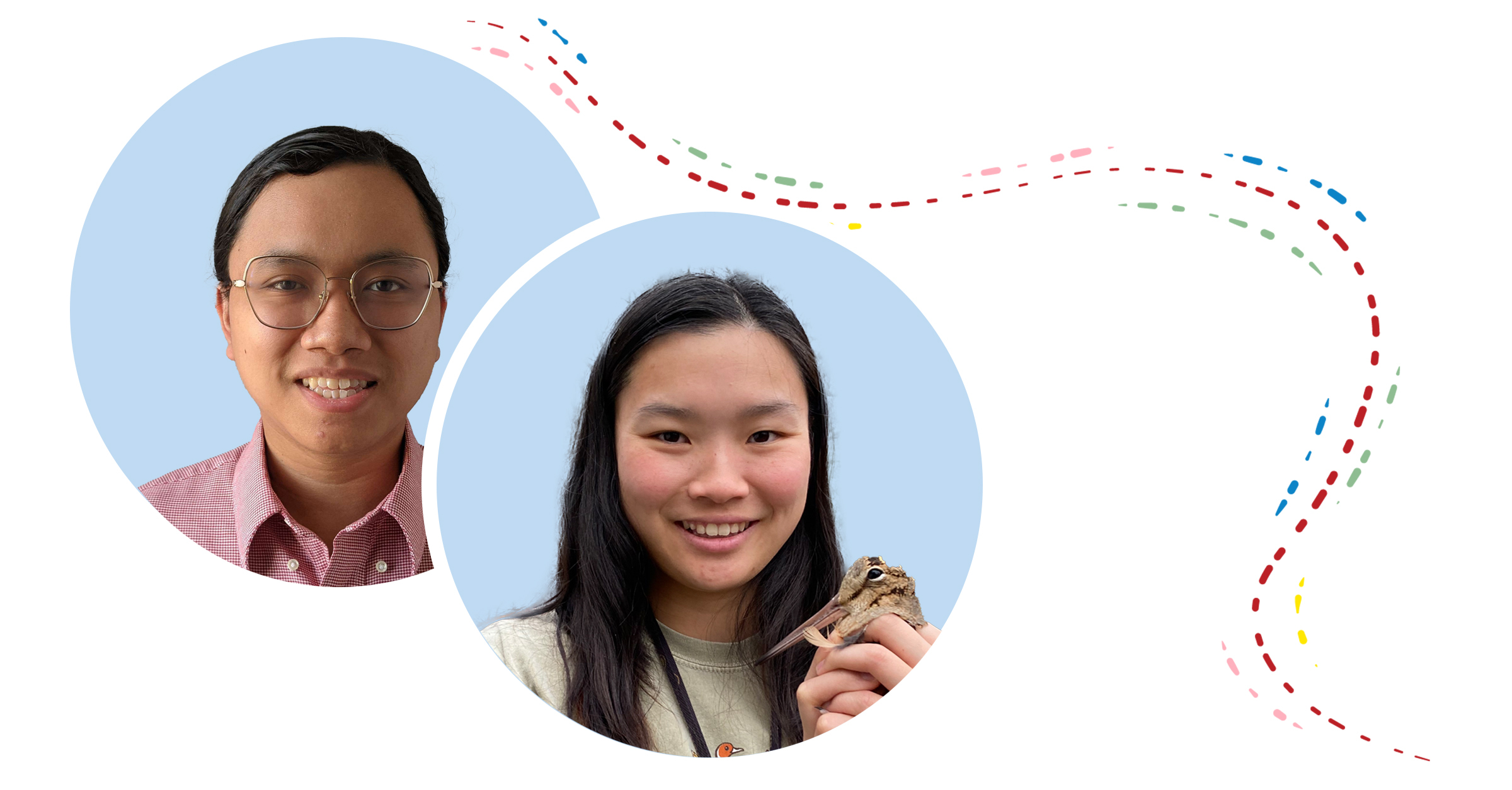By Barbara Brutt, MAXX Potential Content Marketer “Research shows that play is critical for adults’ well-being too — but many of us don’t play enough
The numbers are in…
Gen Z career surveys; middle school exploration; cyber jobs
By Rob Simms
- Posted:
- Education

After our second day at SXSW EDU we are gathering up some data and starting to see some themes: the viability of the non-college career pathway, early career exploration, and durable skills everywhere. Let’s dive into some newly released (like today) research data and connect the dots.
The survey says…
The results of a recent landmark study about high-quality non-college career pathways was released at the conference today. The upshot of the study is that while people believe non-degree pathways to good careers are worth considering, risk aversion and lack of opportunity awareness inhibit action. Specifically:
- 68% of employers and 58% of Gen Z believe companies should hire candidates from non-degree pathways
- 54% of employers and 65% of Gen Z believe non-degree pathways pose more risk
- 80% of employers and 72% of Gen Z believe they need more information about non-degree opportunities
Shocking? No. But even as the ink is drying on the official report (soon to be published), everyone is trying to figure out how to solve for the risk and information challenges it suggests. Thankfully, there are some proven models.
At MAXX, our model for apprentices (the post-graduate opportunity for your students) is a 2-sided market: apprentice and client. Not only is it a market driven model, it’s a self-sustaining model. It sustains as long as we are serving both sides of the model: apprentices are getting great jobs and clients are getting great value. It sustains when we are filling a market need.
The middle school connection
Back in Virginia Beach, Virginia where our team just wrapped up a two-day Career Lab with 30 middle school students, we start to see the connections between the model and how it meets the challenges cited in the research. In Virginia Beach the students were exploring IT careers with hands-on activities and an understanding of the durable skills required to succeed. With this immersive experience, they will have the opportunity and the information necessary to craft a high school experience to maximize their preparedness for a future in tech, should they choose that path. During the session in which the survey results were discussed, Jean Eddy, CEO of American Student Assistance (ASA) said it best: “Middle school is the right time to let kids know what the options are to them.”
Once in high school, part of their preparation might include an immersive IT Work Simulation where students take on job roles and titles in an intense and focused simulation of an Enterprise IT department of a fictitious company. Students emerge with a newfound appreciation for what it really takes to collaborate, problem solve, meet deadlines and get things done in a professional environment.
Students emerging from high school having prepared for a career in tech since middle school will be much more informed and more likely to succeed as an apprentice candidate and have confidence in their future. And when a candidate becomes an apprentice, our clients understand their risk concerns are mitigated through the MAXX process.
About those jobs and those durable skills
This all matters because, according to one panelist today, there will be 36 million cybersecurity jobs over the next decade. That’s just cybersecurity, one aspect of IT which also includes software development, data, systems, quality assurance, etc. On the same panel, another speaker was almost pounding his armrest “…to succeed, people need the durable skills which will allow them to learn the technical skills”.
This last point puts a final note on how MAXX de-risks apprentices in the workplace. Our focus on those durable skills allows our apprentices to succeed, no matter what kind of curveball gets thrown at them.
So while the research study data is new, the problems are not. At MAXX we’ve been refining the solutions for more than a decade. For the past four years that solution also includes our work with schools to help their students understand their options and build confidence in the future.
OUR THOUGHTS
Data Scientist, Federal Reserve Bank of Richmond
Durable Skills meet the World of Work
Impressions from the first day of SXSW EDU 2022
By Rob Simms
- Posted:
- Education

Following our first day at SXSW EDU, Tucker, John and I reflect on “durable skills”, the World of Work curriculum, and a school district where students start career exploration in Kindergarten.
Durable skills
Walking along the Austin skyline during our first evening at SXSW EDU, Tucker brought up his interest in a newfound term: “durable skills”. And while it’s new to us, the concept isn’t. Durable skills are in alignment with what most of us refer to as “soft skills” we at MAXX know are core to the success of our apprentices. This includes personal traits like collaboration and perseverance which are hard to truly measure from a resume or job interview. It’s no wonder students who show signs of these same traits also tend to be the most successful. These are also the skills you carry throughout your career, even as technology changes. So while technology comes and goes; it’s your durable skills which stay with you and allow you to meet new challenges time and again.
We love it.
The next generation of work-based learning
As dozens of conference attendees visited us on the expo floor, you could see their eyes light up when they heard about what we mean when we talk about the Next Generation of Work-Based Learning. This includes:
- Universal agreement those durable skills are key drivers of success
- A recognition of the value of a hassle-free and high quality immersive internship experience
- A sense of wonder when they understood graduates could apply for our apprenticeship program and get their first full-time paid IT job straight out of school
Where kindergarten students explore careers
During the last session I attended, the forward thinking superintendent of Cajon Valley Union School District guided us through the journey his district was making as it incorporates the World of Work into the wider curriculum. Looking deeper into this approach, we see a crossover with durable skills (e.g. problem solving) and the core elements of preparing for careers: exploration and simulation. These are fundamental tenets of the work-based learning programs MAXX delivers in schools today (Career Lab and Work Simulator). Here are a few other interesting takeaways from that session:
- Career exploration starts in Kindergarten and continues through every grade level. This helps students connect their learning to possible future work – making what they learn in school more relevant in the process.
- Students spend about 6 hours / day on their devices – aside from school. While managing screen time down may be desirable, we should also think about meeting students where they are.
- Meeting students where they are means learning how to harness the digital channels and the social media outlets they use today and will be using tomorrow.
Win-win-win-win
For places like Cajon Valley where today 70% of students qualify for free and reduced lunch, we see how supporting programs like World of Work with things like the MAXX Career Lab, Work Simulator and Apprenticeship could have a profound impact on the students, employers and community.
We call that a win-win-win-win.
OUR THOUGHTS
By Barbara Brutt, MAXX Potential Content Marketer “Research shows that play is critical for adults’ well-being too — but many of us don’t play enough
Data Scientist, Federal Reserve Bank of Richmond



